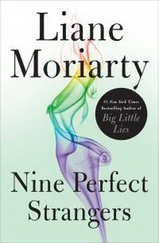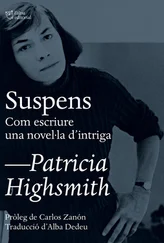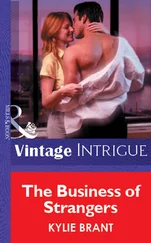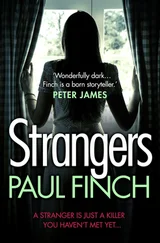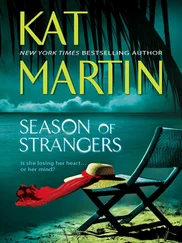“Oh. I’m sorry. I had something to tell you.”
“What?”
“Something I think you’ll like. Well—some other time.”
Guy crept up the stairs, alert for Mrs. McCausland. Anne was cool to him, he thought monotonously, Anne was cool. The next time she saw him, she would know and she would hate him. Anne was through, Anne was through. He kept chanting it until he fell asleep.
He slept until the following noon, then lay in bed the rest of the day in a torpor that made it agony even to cross the room to refill his towel with ice. He felt he would never sleep enough to get back his strength. Retracing, he thought. His body and mind retracing the long road they had traveled. Coming back to what? He lay rigid and afraid, sweating and shivering with fear. Then he had to get up to go to the bathroom. He had a slight case of diarrhea. From fear, he thought. As on a battlefield.
He dreamt in half-sleep that he crossed the lawn toward the house. The house was soft and white and unresisting as a cloud. And he stood there unwilling to shoot, determined to fight it to prove he could conquer it. The gunshot awakened him. He opened his eyes to the dawn in his room. He saw himself standing by his work table, exactly as he stood in the dream, pointing the gun at a bed in the corner, where Samuel Bruno struggled to sit up. The gun roared again. Guy screamed.
He sprang out of bed, staggering. The figure vanished. At his window was the same struggling light he had seen that dawn, the same mingling of life and death. The same light would come every dawn that he lived, would always reveal that room, and the room would grow more distinct with repetition, his horror sharper. Suppose he awakened every dawn that he lived?
The doorbell rang in the kitchenette.
The police are downstairs, he thought. This was just the time they would catch him, at dawn. And he didn’t care, didn’t care at all. He would make a complete confession. He would blurt it all out at once!
He leaned on the release button, then went to his door and listened.
Light quick steps ran up. Anne’s steps. Rather the police than Anne! He turned completely around, stupidly drew his shade. He thrust his hair back with both hands and felt the knot on his head.
“Me,” Anne whispered as she slipped in. “I walked over from Helen’s. It’s a wonderful morning!” She saw his bandage, and the elation left her face. “What happened to your hand?”
He stepped back in the shadow near his bureau. “I got into a fight.”
“When? Last night? And your face, Guy!”
“Yes.” He had to have her, had to keep her with him, he thought. He would perish without her. He started to put his arms around her, but she pushed him back, peering at him in the half light.
“Where, Guy? Who was it?”
“A man I don’t even know,” he said tonelessly, hardly realizing even that he lied, because it was so desperately necessary that he keep her with him. “In a bar. Don’t turn on the light,” he said quickly. “Please, Anne.”
“In a bar?”
“I don’t know how it happened. Suddenly.”
“Someone you’d never seen before?”
“Yes.”, “I don’t believe you.”
She spoke slowly, and Guy was all at once terrified, realizing she was a separate person from himself, a person with a different mind, different reactions.
“How can I?” she went on. “And why should I believe you about the letter, about not knowing who sent it?”
“Because it’s true.”
“Or the man you fought with on the lawn. Was it the same one?”
“You’re keeping something from me, Guy.‘Then she softened, but each simple word seemed to attack him: “What is it, darling? You know I want to help you. But you’ve got to tell me.”
“I’ve told you,” he said, and set his teeth. Behind him, the light was changing already. If he could keep Anne now, he thought, he could survive every dawn. He looked at the straight, pale curtain of her hair, and put out his hand to touch it, but she drew back.
“I don’t see how we can go on like this, Guy. We can’t.”
“It won’t go on. It’s over. I swear to you, Anne. Please believe me.” The moment seemed a test, as if it were now or never again. He should take her in his arms, he thought, hold her fiercely until she stopped struggling against him. But he could not make himself move.
“How do you know?”
He hesitated. “Because it was a state of mind.”
“That letter was a state of mind?”
“The letter contributed to it. I felt tied in a knot. It was my work, Anne!” He bowed his head. Nailing his sins to his work!
“You once said I made you happy,” she said slowly, “or that I could in spite of anything. I don’t see it anymore.”
Certainly he did not make her happy, she meant to say. But if she could still love him now, how he would try to make her happy! How he would worship and serve her! “You do, Anne. I have nothing else.” He bent lower with sudden sobs, shameless, -wracking sobs that did not cease the long moment before Anne touched his shoulder. And though he was grateful, he felt like twisting away from the touch, too, because he felt it was only pity, only humanity that made her touch him at all.
“Shall I fix you some breakfast?”
Even in the note of exasperated patience he heard in her voice, there was a hint of forgiveness that meant total forgiveness, he knew. For fighting in a bar. Never, he thought, would she penetrate to Friday night, because it was already buried too deep for her or for any other person to go.
Twentyfive
“I don’t give a damn what you think!” Bruno said, his foot planted in his chair. His thin blond eyebrows almost met with his frown, and rose up at the ends like the whiskers of a cat. He looked at Gerard like a golden, thinhaired tiger driven to madness.
“Didn’t say I thought anything,” Gerard replied with a shrug of hunched shoulders, “did I?”
“You implied.”
“I did not imply.” The round shoulders shook twice with his laugh. “You mistake me, Charles. I didn’t mean you told anyone on purpose you were leaving. You let it drop by accident.”
Bruno stared at him. Gerard had just implied that if it was an inside job, Bruno and his mother must have had something to do with it, and it certainly was an inside job. Gerard knew that he and his mother had decided only Thursday afternoon to leave Friday. The idea of getting him all the way down here in Wall Street to tell him that! Gerard didn’t have anything, and he couldn’t fool him by pretending that he had. It was another perfect murder.
“Mind if I shove off?” Bruno asked. Gerard was fooling around with papers on his desk as if he had something else to keep him here for.
“In a minute. Have a drink.” Gerard nodded toward the bottle of bourbon on the shelf across the office.
“No, thanks.” Bruno was dying for a drink, but not from Gerard.
“How’s your mother?”
“You asked me that.” His mother wasn’t well, wasn’t sleeping, and that was the main reason he wanted to get home. A hot resentment came over him again at Gerard’s friend-of-the-family attitude. A friend of his father’s maybe! “By the way, we’re not hiring you for this, you know.”
Gerard looked up with a smile on his round, faintly pink-and-purple mottled face. “I’d work on this case for nothing, Charles. That’s how interesting I think it is.” He lighted another of the cigars that were shaped something like his fat fingers, and Bruno noticed once more, with disgust, the gravy stains on the lapels of his fuzzy, light-brown suit and the ghastly marble-patterned tie. Every single thing about Gerard annoyed Bruno. His slow speech annoyed him. Memories of the only other times he had seen Gerard, with his father, annoyed him. Arthur Gerard didn’t even look like the kind of a detective who was not supposed to look like a detective. In spite of his record, Bruno found it impossible to believe that Gerard was a top-notch detective. “Your father was a very fine man, Charles. A pity you didn’t know him better.”
Читать дальше




